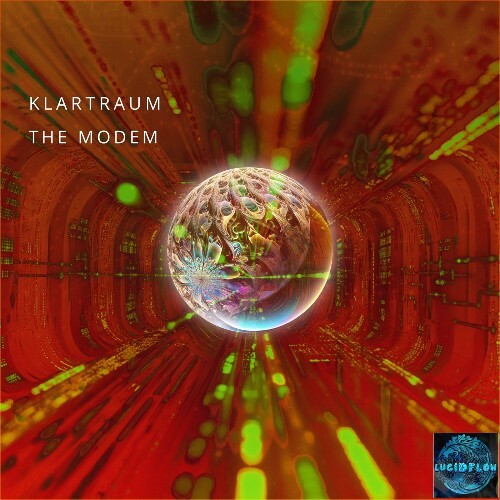Популярные статьи
Реклама
Обратная связь
Яндекс Апдейт
Сервис не доступен
Оцените работу движка
Кто онлайн
Гость Гость Гость Гость Гость Гость Гость Гость Гость Гость Гость Гость Гость Гость Гость Гость Гость Гость Гость Гость Гость Гость Гость Гость Гость Гость Гость Гость Гость Гость Гость Гость Гость Гость Гость Yandex Гость Гость Гость Гость Гость Гость Гость Гость Гость Гость Гость Гость Гость Гость Гость Гость Гость Гость Гость Гость Гость Гость Гость Гость Гость Гость Гость Гость Гость Гость Гость Гость Гость Гость Гость Гость Гость Гость Гость Гость Гость Гость Гость Гость Гость Гость Гость Гость Гость Гость Гость Гость Гость Гость Гость Гость Гость Гость Гость Гость Гость Гость Гость Гость Гость Гость Гость Гость Гость Гость Гость Гость Гость Гость Гость Гость Гость Гость Гость Гость Гость Гость Гость Гость Гость Гость Гость Гость Гость Гость Гость Гость Гость Гость Гость Гость Гость Гость Гость Гость Гость Гость Гость Гость Гость Гость Гость Гость Гость Гость Гость Гость Гость Гость Гость Гость Гость Гость Гость Гость Гость Гость Гость Гость Гость Гость Гость Гость Гость Гость Гость Гость Гость Гость Гость Гость Гость Гость Гость Гость Гость Гость Гость Гость Гость Гость Гость Гость Гость Гость Всего: 186
У нас искали

 Категория: Документальный
Категория: Документальный
 Дата: 16-05-2025, 14:23
Дата: 16-05-2025, 14:23
 Автор публикации: CatharineTincher
Автор публикации: CatharineTincher
What is the Low-tech Lab
Created in 2013, the LowTechLab is a French non-profit organization focused on exploring and cataloging low-tech solutions that tackle fundamental necessities while preserving both people and the planet. Originating from a journey in Bangladesh where initiator Corentin de Chatelperron tested self-reliance using basic technologies, the organization has grown into a global movement promoting the low-tech approach.
The Fundamental Values of Low-tech
At the core of the Low-tech Lab's philosophy are three essential criteria that distinguish a authentic low-tech approach:
Useful: Low-techs must address essential needs of persons or societies. They enhance lifestyles, generating and utilizing that are reasonable and suitable in diverse areas such as power, food, hydration, refuse handling, shelter, mobility, communication, and health.
Obtainable: Low-techs need to be innovations that as many people as possible can embrace - both functionally and financially. This means they can be created and maintained in the area, with straightforward functioning and expenses aligned to a large part of the society.
Sustainable: Low-techs are eco-designed, robust, solid, repairable, repurposable, agile, and practical. They stimulate users to reflect on and optimize the environmental, collective, or cultural impacts linked to employing these methods, at each step of their lifespan.
The Objective of Low-tech Lab
The goal of the Low-tech Lab is to spread sustainable innovations and the low-tech spirit with the largest community, offering everyone the motivation and means to thrive with fewer resources. This goal is accomplished through four main approaches:
Explore and Experiment: The Lab performs explorations to discover low-tech solutions internationally and trials them in diverse environments to demonstrate their relevance in practice.
Document: All discoveries and trials are meticulously documented, focusing on both functional characteristics and sustainability and economic capabilities. This information is disseminated open-source for anyone to use.
Enable Development: By offering collaborative tools and collective initiatives, the Low-tech Lab permits people to advance in the low-tech journey while providing to the worldwide community.
Distribute and Teach: The Lab conveys knowledge and testimonies from low-tech ambassadors, demonstrating what is possible to motivate people.
Significant Undertakings of the Low-tech Lab
Throughout its history, the Low-tech Lab has developed numerous significant projects that showcase the potential of eco-friendly technologies:
Sea Nomad (2016-2022): A experimental boat that sailed around the world investigating low-tech technologies in different countries. The crew integrated these learnings into their onboard ecosystem and regular activities.
Sustainable Dwelling (2018-2020): After exploring low-tech innovations for homes across France, the team integrated 12 low-techs in a residential space. Their 10-month test showed that it is possible to live comfortably and economically while significantly reducing one's environmental footprint.
Self-contained Environment (2018): A four-month experiment in self-reliance using 30 eco-friendly innovations to establish a living system model that fulfilled fundamental necessities.
Eco-friendly Aid for Refugees (2018-2019): A program that introduced low-tech innovations to better the situations of displaced people on the Greek island of Lesbos, proving how simple technologies can resolve crisis situations.
Low-tech Vehicle (2017-2020): An exploration of low-tech mobility, focusing on organic components and repurposed energy in the vehicle market.
The Worldwide Low-tech Movement
The influence of the Low-tech Lab extends far outside its founding place in France. The organization has nurtured a worldwide community of area groups that carry out the goal of the Low-tech Lab by creating initiatives suitable for the requirements in their respective areas.
As of today, the Low-tech Lab has documented:
Nearly 950 low-tech ventures in more than 100 regions
Ten application domains including Food & Farming, Energy, Shelter, Hydration, and Culture & Society
Local branches in multiple countries including France, Switzerland, Belgium, Luxembourg, Canada, Cameroon, Lebanon, and Benin
The cooperative character of the Low-tech Lab is apparent in its methodology to knowledge sharing. The organization runs a collaborative website for instructions, a catalog of low-tech initiatives, and discussion forums where contributors can exchange inquiries, projects, and thoughts.
Digital Sobriety: The Low-tech Lab's Web Approach
In harmony with its devotion to eco-friendliness, the Low-tech Lab has pioneered an original method to its online presence. Understanding that digital technology is the business domain in which resource utilization and greenhouse gas emissions are growing the most rapidly, the organization reconstructed its online platform to exemplify sustainable practices.
The product is a online platform that is:
Significantly smaller than the global norm (150 kb per page vs. 1.8 MB)
Quick to access (less than 3 seconds to entirely display)
Conservative in server communications (8 vs. 74 requests per page)
Accessible to people with limited bandwidth or aging equipment
This methodology demonstrates that web sustainability can be achieved without compromising practicality or aesthetic appeal, setting a model for additional entities to adopt.
Assisting the Low-tech Lab
As a non-profit organization, the Low-tech Lab counts on aid from persons and entities who believe in its goal. People can assist the Low-tech Lab by:
Making a donation: Financial contributions assist the organization to continue its activities and expand its reach.
Becoming a partner: Organizations can directly assist the Low-tech Lab and take part in the sustainable technology community.
Contributing to collaborative tools: Individuals can add documents to the Low-tech Lab's shared repositories.
Communicating information: Helping to spread the eco-friendly mindset by sharing the work of the Low-tech Lab with colleagues.
Conclusion
The LowTechLab embodies a compelling choice to the technologically complex, environmentally damaging direction that modern society often follows. By promoting technologies that are useful, attainable, and environmentally sound, the organization presents a outlook of a society where technology assists human needs without exhausting the planet's resources.
By means of its multiple ventures, community tools, and international collective, the Low-tech Lab is not just cataloging existing solutions but actively shaping the way we think about and relate to advancement in a planet confronting unprecedented environmental challenges.
As we traverse the complexities of the 21st century, the values and methods promoted by the Low-tech Lab present a convincing roadmap for building a more sustainable, fair, and convivial society.

 Название: Klartraum - The Modem (2025)
Название: Klartraum - The Modem (2025)
 Категория: Поп-музыка
Категория: Поп-музыка
 Дата: 16-05-2025, 14:15
Дата: 16-05-2025, 14:15
 Автор публикации: Magik
Автор публикации: Magik

 Категория: Шансон
Категория: Шансон
 Дата: 16-05-2025, 13:56
Дата: 16-05-2025, 13:56
 Автор публикации: SybilPan045
Автор публикации: SybilPan045
 Теги:
Теги:
It's not a limited-time rental, though you could rent it at Amazon for $6 if you prefer. Whether you're a big or rue the fact that you missed out on No Time to Die, here's the deal for you.
Feel free to surf to my web blog;
Feel free to surf to my web blog;

 Категория: Ос и сборки
Категория: Ос и сборки
 Дата: 16-05-2025, 13:46
Дата: 16-05-2025, 13:46
 Автор публикации: RedaVanderpool
Автор публикации: RedaVanderpool
 Теги:
Теги:
Do you have a passion for the thrill of gambling without having to leave your home? If so, an online casino might just be the perfect option for you If you have any sort of concerns concerning where and the best ways to use [/url], you could contact us at our web site. .

 Название: Heic Na Jpg 92
Название: Heic Na Jpg 92
 Категория: Альтернатива
Категория: Альтернатива
 Дата: 16-05-2025, 13:04
Дата: 16-05-2025, 13:04
 Автор публикации: FredSorrells
Автор публикации: FredSorrells
 Теги:
Теги:
Konwersja do Online i za darmo Mobilny system operacyjny iOS 11 wprowadził go jako nową alternatywę dla domyślnego formatu obrazu dla iPhone’a. Apple Inc. ogłosił, że zastępuje pliki JPEG tym nowym formatem obrazu.

 Категория: Работа с текстом
Категория: Работа с текстом
 Дата: 16-05-2025, 12:59
Дата: 16-05-2025, 12:59
 Автор публикации: Hope05L1335
Автор публикации: Hope05L1335
It's no wonder that there are so many online casinos out there, and with such a wide selection it can be difficult to know which one is right for you. That's why at CasinoReviews Here's more on [/url] take a look at our own web-page. .

 Категория: Работа с текстом
Категория: Работа с текстом
 Дата: 16-05-2025, 12:55
Дата: 16-05-2025, 12:55
 Автор публикации: SamDel
Автор публикации: SamDel
 Теги: powerPoint, создать, презентацию, учебный, курс
Теги: powerPoint, создать, презентацию, учебный, курс
iSpring Suite — является дополнением к PowerPoint, поэтому прост и удобен в работе. Позволяет превратить обычную презентацию в профессиональный учебный курс. Продукты iSpring пользуются доверием у образовательных организаций и бизнеса, как лучшие инструменты для e-learning. Многие всемирно известные компании, такие как Oracle, Sony, P&G, IBM, adidas, AMD, используют продукты iSpring для организации корпоративного обучения.

 Категория: Интернет и Сети
Категория: Интернет и Сети
 Дата: 16-05-2025, 12:50
Дата: 16-05-2025, 12:50
 Автор публикации: YvetteWray421
Автор публикации: YvetteWray421
Онлайн Казино Адмирал стремится к обеспечению разнообразия досуга для активных игроков.

 Категория: Портативные программы
Категория: Портативные программы
 Дата: 16-05-2025, 12:43
Дата: 16-05-2025, 12:43
 Автор публикации: Darlene90S
Автор публикации: Darlene90S
 Теги:
Теги:
The Rolling Stones performed on their European and North American No Filter Tour which began in Hamburg, Germany in September 2017 and was scheduled to conclude in 2020 but later finished in 2021 after it was postponed due to to coronavirus.
Check out my page:
Check out my page:

 Просмотров: 35
Просмотров: 35  Комментариев: (0)
Комментариев: (0)
